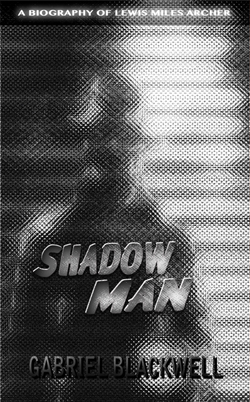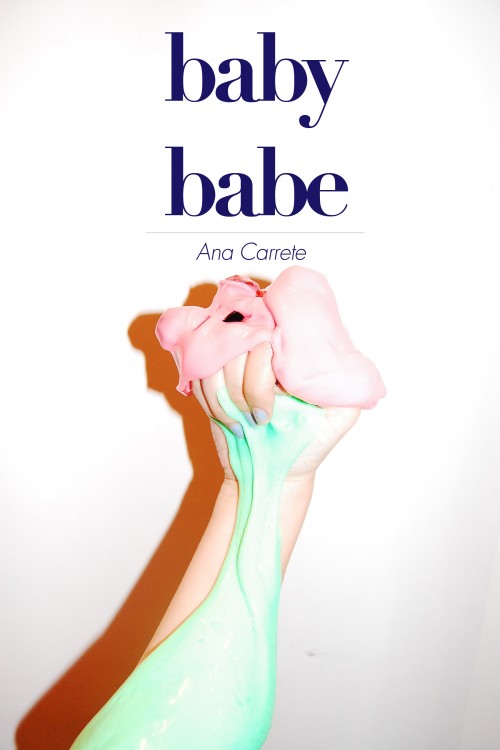Finding Something
—Jack Gilbert, 1925-2012
I say moon is horses in the tempered dark,
because horse is the closest I can get to it.
I sit on the terrace of this worn villa the king’s
telegrapher built on the mountain that looks down
on a blue sea and the small white ferry
that crosses slowly to the next island each noon.
Michiko is dying in the house behind me,
the long windows open so I can hear
the faint sound she will make when she wants
watermelon to suck or so I can take her
to a bucket in the corner of the high-ceilinged room
which is the best we can do for a chamber pot.
She will lean against my leg as she sits
so as not to fall over in her weakness.
How strange and fine to get so near to it.
The arches of her feet are like voices
of children calling in the grove of lemon trees,
where my heart is as helpless as crushed birds.
Matthew Vollmer: Inscriptions for Headstones
I saw Matthew Vollmer’s Inscriptions for Headstones on the floor, alongside a gun cleaning kit and a disc golf disc and a dead spider. I picked it up. I actually began the book thinking I would skim through it, maybe perusing a third, just seeing what it was all about. I read the entire book, from first to last page, in one sitting. This doesn’t happen to me very often.
The text is 30 short essays, crafted as epitaphs, each one unfolding in a single sentence. On reading this idea, I thought, “That seems a bit much. That might be gimmicky.”
It actually works. Why?
The epitaph concept (a sort of “appropriated form”—a type of structure I’m into lately) adds many echoes, many layers, many possibilities. We arrive immediately on significant terrain—death. And a summary of life. We enter a mood of meditation, of introspection, not so unlike a walk through a cemetery (30 headstones aligned). And what is an epitaph on a headstone? First, a lie (actual epitaphs are 99% abstract and pithy and positive), but then instantly an absurdity (the measuring up, in a few words, on a stone). But, if you twist the epitaph (one concept of appropriated form work is to make it your own, to take the original—whether a complaint letter, Facebook post, list, whatever—and morph the form to your unique intent and way and need, etc.), lengthen the epitaph, broaden the epitaph into a lyrical remembering, the form can open us up to questionings. It can even lead us to ask, “What is life?”
The one sentence works, too.
November 13th, 2012 / 3:35 pm
Q & A WITH TODD GRIMSON
Todd Grimson is one of the great living cult novelists. I’ve known him for a few years, under strange circumstances. He wrote Brand New Cherry Flavor, which is both one of my favorite horror novels and my favorite novel about Hollywood and the film industry. He also wrote the underground vampire classic Stainless. Both were recently re-released by Schaffner Press, which is now publishing his new collection of stories, Stabs at Happiness, in pleasing hardcover.
It’s a terrific collection, diverse and weird and disturbing. (Here are some reviews: Litbitch. The Oregonian. Gothic.net.) You can and should buy it.
I asked Todd some questions about Stabs at Happiness and about his strange life and career.
For a while, you assumed the name “I. Fontana” and published stories in BOMB, Juked, The Quarterly, Lamination Colony, Word Riot, PANK, the Voice Literary Supplement, Bikini Girl, Spork and many others. We corresponded for some time before I knew your real name. Why did you adopt that name?
Fontana comes from “Fontana Mix,” a composition by John Cage I heard when I was 13. READ MORE >
Shitty Youth has been released
Last night Adam Humphreys released Shitty Youth, a 36 minute film following Zachary German, who most of you are likely familiar with, on Vimeo through the film’s Facebook page. The film follows Zachary for two years following the release of his first novel Eat When You Feel Sad and features interviews with Tao Lin, Brandon Gorrell, Steve Roggenbuck and myself.
Now we can all die.
You Private Person: An Interview with Richard Chiem
I interviewed Richard Chiem on the occasion of his first book, You Private Person, published by Scrambler Books. Photos via Frances Dinger and (the above) Matthew Simmons.
What was your favorite book when you were younger? What books have made you lol or cry or feel excited?
I think I read a lot of Goosebumps books and Animorphs books, and I was trying to collect the whole series for each. If I think about 1995, there were many times of me just waiting by myself inside a Safeway, because you could find them in the book aisle. I could read one of those books in about two and a half hours, so it became an easy addiction, since I wanted to know everything, to know the whole story. I would stack up my stacks of books next to my video games and my comic books in towers. They were each numbered like episodes, and in different colors. It seemed perfect to me at the time to have them all. I would save up six or seven dollars, everything other week or so in 1995, waiting in line at a Safeway. I recognized a particular need to read. But they never made me cry or laugh. I don’t really remember what exactly I was feeling when I was eight years old, in third grade, but I remember those simple horror and adventure stories, and I can still talk about them.
I turn on subtitles when I watch movies now. Some of my friends hate it and some really like it. It was adding another dimension to every movie and it quickened the pace of the viewing experience for me. And I watch a lot of movies. I always write after watching
a movie when everything still feels really alive about the story.
Eating Donuts with Michael Kimball

I showed up at Michael Kimball’s sweet new condo with a dozen donuts.
His father was a fat man, like the title character in Big Ray, Kimball’s latest novel that you’ve heard so much about. We poured out glasses of orange juice, and in memory of his father, dug into those gross ass donuts.
For the first twenty minutes of what would be a two hour conversation, Michael recounted the events of the previous Saturday night, a rowdy, drunken time we had that I beered out of memory. Listening to the stories was like hearing about myself as if I was my own close friend who missed a party I threw.
Reading Big Ray is like hearing about an equally close friend processing some serious loss. Michael Kimball does emotional immediacy better than any writer alive, I shit you not. READ MORE >
Weston Cutter interviews Gabriel Blackwell
 I’m a huge admirer of Gabriel Blackwell — as prose editor at Noemi Press, I’m publishing his book of short fiction Critique of Pure Reason very soon, and I’ve published a piece of his body of work in almost every venue I’ve gotten my hands on. What I mean to say is that I can vouch for him as a writer and as a human being, and that you should also check out his novel Shadow Man, about which Weston Cutter has interviewed him. Here is Weston’s introduction, and their interview:
I’m a huge admirer of Gabriel Blackwell — as prose editor at Noemi Press, I’m publishing his book of short fiction Critique of Pure Reason very soon, and I’ve published a piece of his body of work in almost every venue I’ve gotten my hands on. What I mean to say is that I can vouch for him as a writer and as a human being, and that you should also check out his novel Shadow Man, about which Weston Cutter has interviewed him. Here is Weston’s introduction, and their interview:
Gabriel Blackwell’s Shadow Man: a Biography of Lewis Miles Archer arrived in black and white. I mean that both the galley copy was not full color, and that the book offers itself as a thing in or amidst a noirish fog, like some old cinematic masterpiece. Here’s how it starts: “Lewis Miles Archer, or anyhow the man known to creditors and clients as Lewis Miles Archer for just long enough to build up a respectable sheet of both, was born sometime between 1879 and 1888, somewhere in the shadow of Lake Michigan.” What Blackwell’s doing with this sort of dancing-away imprecision (four different states, for instance, could claim regions in the shadow of Lake Michigan) is crafting a slippery-but-detailed-as-possible biography of a fictional character. What actually happens to you as you read is you feel the line between ‘real’ and ‘fiction’ slipping, twisting and going porous in ways that, at least to this reader, become unsettling in fantastic ways: one less reads Shadow Man than goes into it and, later, comes out from it. It’s a hell of a thing. Gabe and I recently batted a single round of questions back and forth, hoping we’d get into more questions but then, after the first round, realizing 1) we’d gotten done what we’d hoped and 2) life intrudes.
Weston Cutter: Were there any rules in how you composed this book? In other words, did you keep 100% fidelity to the fictiveness of fiction and the ‘reality’ of reality? And how did this book end up taking the form it did? I guess mostly this question’s one rooted in fascination, one writer to another saying: how the fuck did you even find the trail that let you even begin to walk toward the result that is this book? How does one do that?
Gabriel Blackwell: I don’t think I thought of them as rules, but I guess they could be viewed that way—I created none of my characters and tried as much as possible to put the events from my texts (Raymond Chandler’s The Big Sleep, Dashiell Hammett’s The Maltese Falcon, and Ross Macdonald’s The Moving Target) into new contexts rather than invent other events to suit the narrative. But those didn’t seem like rules—I was just trying to write a book that worked in the way that I wanted this book to work. Shadow Man, which has to do with inheritance and imitation, needed to be a node rather than a terminal, a book that pointed outside of itself in constructive ways. I like lots of terminal fictions, books that assert that what they are describing is to be believed for the duration of their story and no further, books that begin and end inside the author’s head. But it’s rare that I’m actually caught up in those books; I’m always conscious of the writer playing house with me. That tends to take me out of it. I don’t want to read a transcript of someone playing with paper dolls, not if it isn’t really compelling. READ MORE >
Needing Don DeLillo
“A writer takes earnest measures to secure his solitude and then finds endless ways to squander it.”
– Don DeLillo, The Art of Fiction, The Paris Review No. 135
The following is a discussion of the world and effects of the works of Don DeLillo. The books focused on are chosen more by my emotional state than by pragmatism, however all of his works will make an appearance at some point. The assertion here is both personal and universal, stating that Don DeLillo changed my life, and gave new breath and scope to the world of literature.
Don DeLillo began writing later than many the American prodigy to change the movement of our country’s letters. His first novel, Americana (published when he was roughly 35 years old)—a winding tale of one man’s devolving lunacy reflecting a life of advertising, television, and travel—to hear him tell it, came from a quick sight of a man standing on a road staring off at nothing, that brief vision was enough to carry him through the beginnings of his first novel and, in light of that, the early stages of what has been one of the more tumultuous careers in history.
When the idea came to me to write about Don DeLillo for HTMLGiant, it was first slated to be an exploration of his novels Great Jones Street and, ideally, White Noise—comparing something less-discussed to something hailed as one of the masterpieces of the latter half of the 20th century; what fueled this? What brought about this response? Etc. etc. etc. ad infinitum. However, I found myself unable to hold back certain instincts as I began to reflect over his impact on me and this world as a whole, and in spite of myself began falling deeper and deeper into a DeLilloan stupor with every interview, novel, and anecdote explored. I found the intricacies of his books that I’d call my favorite proved far less ambiguous than I’d thought and that–say, with the discussion of contemporary (in 1985-ish) universities in White Noise–his work was sewn deeper into me than I’d realized.
There was, I think, initially an aversion to his writing due to the fact that the only copy of DeLillo’s work we had in my house growing up was a very daunting paperback of Underworld (interestingly, I was only completely drawn back to it when attempting an essay on the Spaldeen, a little Hi-Bounce Ball made by Spalding that I’ve become quite obsessed with that DeLillo notes in the novel, as they were the primary ball used in stick ball games in New York City in the heyday). I remember picking it up one day after reading Bret Easton Ellis considered him a great influence and finding myself lost beyond salvation. The words didn’t exactly register and when they did they seemed strange, infused with a level of what I’d now call reified Americanism that wasn’t apparent in anything I’d been reading at the time (Ellis, Fante, Kesey, et al, authors of fiction that seemed to be right there, which I found in DeLillo only after reaching the necessary level of paranoia to understand the first book of his I read and loved, Mao II) and in spite of a burning curiosity, I tucked the paperback where I’d picked it up on the shelf to remain for several years until I found those radiant little pink Spaldeens in a hardware store in Eau Claire, Wisconsin.
October 26th, 2012 / 12:00 pm
More Heroine Talk, Plus Book Giveaway!

I recently interviewed Kate Zambreno about her new book Heroines (Semiotext(e) Active Agents, Nov. 1st) for The Paris Review Daily; but before we got to the conversational style of that interview, we began our discourse differently: more theoretically, I guess you could say. After the jump you can read this earlier version of the interview. In addition, Kate has generously offered to give away one of her author copies of Heroines to one lucky person who answers the question at the end of the interview.
(And for those of you in Philly, Kate will be reading at Penn Feminism/s November 1, and then in New York sponsored by The New Inquiry at BookCourt November 2 and Segue series November 3, Meghan Lamb’s reading series with Suzanne Scanlon November 4, and many other readings you can find out about on her website katezambreno.com)
Ready, set, go…
Ana Carrete’s “Baby Babe”
I want to trumpet the arrival of Ana Carrete‘s debut book of poetry and drawings, Baby Babe, published by Civil Coping Mechanisms next month.
What to expect? Ana’s poetry plays with words. Her poems play with themselves. That sexual double-entendre is appropriate and typical of her work. The word “come” is always euphemistic in Ana’s poetry. Sex is on the brain, and the brain is a clever, punning, playing one, with a wry sense of humor. The twenty-five-year-old girl-woman who writes these poems is rarely without her sense of humor, even when it’s grim.
October 16th, 2012 / 10:06 pm




